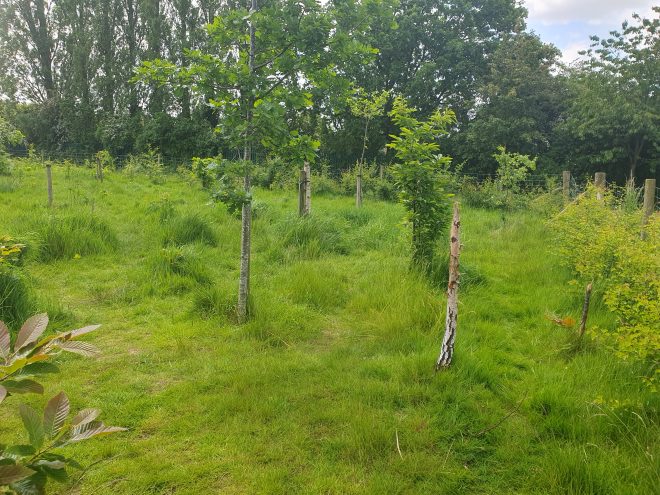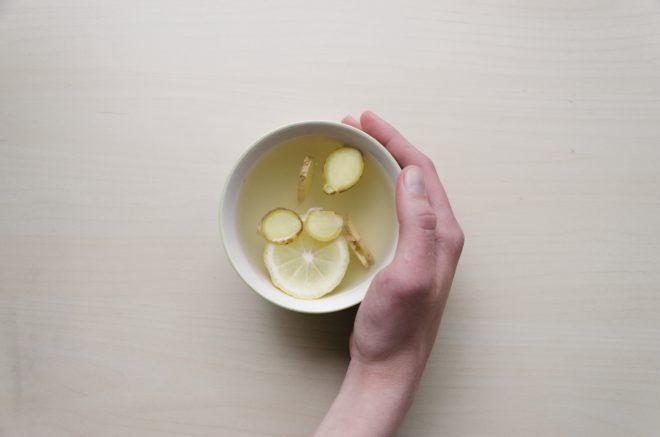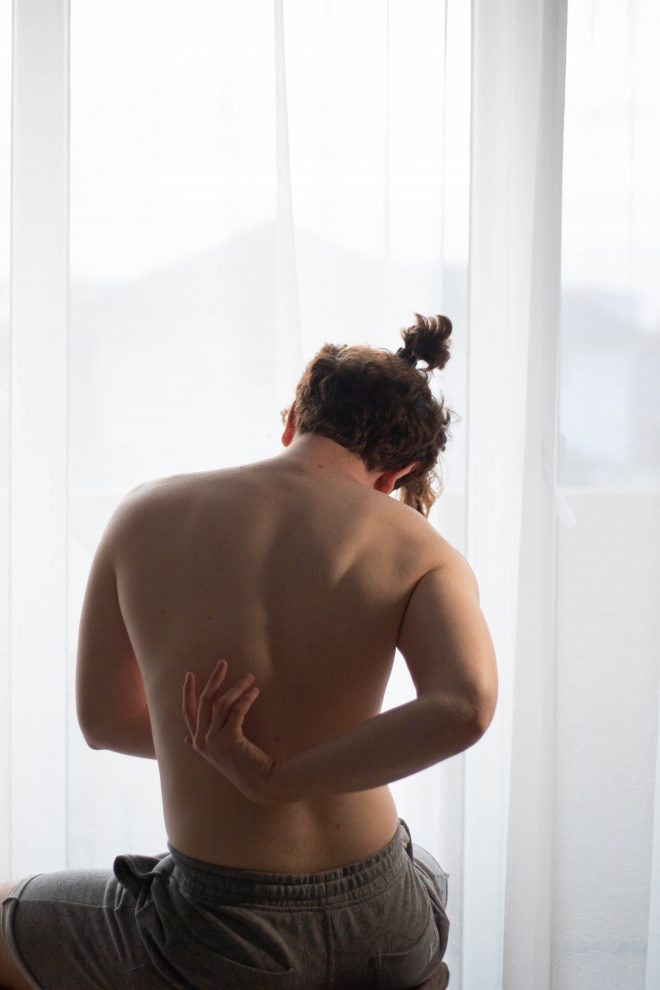
Clinic News
The warmer weather warrants us to start doing more in our gardens, get out and about and maybe book some nice holidays. Don't take back pain on holiday - check out some top tips from Matt this month on how to keep those aches and pains away.
Did you know Ruth our sports massage therapist is also a fantastic photographer - we commissioned her to redo our portraits - check them out on our webpage. PHOTOS
The chiropractic team will be going to Birmingham on Saturday 10th June for the Royal College of Chiropractors Summer Conference. Luke and Erin will be working on their PRT and Alex will be getting an update on her trainer status. Please note the clinic will be closed that Saturday.
When did you last browse the clinic website? There are some great resources there - exercise videos, self-help for setting up your car seat, desk chair and recommendations for buying a bed - why not have a look?
Just an update of the 30 trees for 30 years fund status - the current total is £4436.21. There are still some raffle prizes waiting for collection.
We will be planting our trees in November at the Hetly Pearson Recreation Ground. There are two small copses there already but sadly most of the council's trees have been vandalised. Alex has offered to replace these with ours, plus a few extra out on the grass area.
Please look out for the date so you can put it in your diary., It would be lovely for you to join us in making this event memorable - more details will follow in due course.

How To Beat Jet Lag Naturally
Travelling to new places can be interesting and exciting. However, the excitement of holidays can be dulled by jet lag. If you’re travelling for business, overcoming jet lag can be even harder as you often need to arrive at your destination ready to work.
Your body’s 24 hour cycle, or circadian rhythm, relies on many external triggers. These triggers, called zeitgebers, include light, temperature, social interactions, exercise, eating and drinking. Many of these cues are disrupted when travelling to a different time zone. Jet lag occurs when your circadian rhythm is no longer in sync with your external environment.
Using knowledge of zeitgebers, you can use natural methods to support recovery from jet lag to help you enjoy your travels as much as possible.
- Use light cues
If you arrive at your destination when it’s night time; while you are travelling, try to stay in the dark to induce a feeling of sleepiness and avoid the blue light from electronic devices. If you arrive in the morning, try to maximise your exposure to natural, bright light.
- Get optimal amounts of sleep
Leading up to your travel date, ensure you get some good quality sleep. If you’re already exhausted when you travel, jet lag will be harder to deal with. If you feel like you need to sleep on a long haul flight, do so.
- Take advantage of fans and air conditioning
Lower external temperatures lower your body’s core temperature, signalling that it’s time for sleep. So, if you arrive leading up to bedtime, set the temperature of your room to be a little cooler than normal to help you to drift off.
- Get active & social
Social interaction stimulates wakefulness. So, if you arrive in the morning, why not get out and explore the locality! Exercising during the day will also help you to feel awake. If you’re on a busy business trip however, this may mean paying a quick trip to the hotel gym before your meetings.
- Eat meals at local times
Enjoy the local cuisine, and enjoy it at the times that the locals do. Try altering your normal eating pattern up to three days before travelling to help your body acclimatise. Beware that aeroplane meals are often served at ‘home’ time and this can sabotage your efforts to reset your bodyclock. Focus on meals with protein to stay awake (a protein-based breakfast is great for your health anyway!) and choose meals with carbohydrates to help you fall asleep.

Camping tips
Summer in Britain is one of the most wonderful times of the year. It gives scope to exploring the UK’s bountiful landscapes that otherwise remain untouched during the cold winter months. Many of us will be keen to pull the tent out from the cupboard, brush off the dust and cobwebs and pitch it in a field or at one of the numerous festivals taking place this time of year for a spot of camping.
However, sleeping on a hard surface may cause problems for your back, making it essential to take extra care to ensure your campsite is a comfortable one. Here’s how
Protect your back
It’s very important to protect your back against hard and sometimes damp surfaces while camping to avoid back ache. Sleeping on a good quality camping mat or air mattress will help. If you can, try these out in a shop before buying them.
Sticks and stones
Make sure you remove any large stones or sticks that could dig into your spine while you sleep.
Stay straight
Ensure that you are sleeping in a position where your spine is in a straight line as this helps to avoid neck and back pain. Remember to take a pillow along with you too, as this will ensure that your back and neck stay aligned.
Heavy goods
Make sure that you lift and carry your camping equipment with care. Top tip: make sure you carry your equipment in two bags rather than one to distribute the weight evenly and reduce strain on your back when carrying them.

Magnesium
Most of us are aware of the importance of calcium for our health – especially for our bones. But magnesium is another vital mineral for our bones, as well as for our muscles and nerves; it can actually be more difficult to get enough of this mineral in our diet than to get enough calcium.
magnesium is needed for normal muscle and nerve function. Without magnesium, our muscle fibres wouldn’t be able to relax after they have contracted, and nerve impulses wouldn’t be able to travel around our body properly.
Magnesium is vital for strong bones and teeth too. If you’re trying to improve or maintain your bone strength, it’s essential to include lots of magnesium-rich foods as well as calcium-rich foods. Magnesium is also necessary for our cells to convert the food we eat into usable energy, and also for healthy ‘psychological function’ including mood and how we deal with stress.
For these reasons, symptoms of not getting enough magnesium may include muscle cramping, tight or weak muscles, increased pain, and loss of bone strength, as well as lack of energy, low mood, greater susceptibility to stress, and even poor sleep or insomnia. The main sources of magnesium in our diet are plant foods, particularly green leafy vegetables such as kale, chard and spinach as well as seeds and nuts, particularly pumpkin seeds and hemp seeds.
The general adult recommended daily allowance for magnesium is 375mg. Like any nutrient, our requirements can vary and the amount of magnesium present in foods can also vary. But as a general rule, we need to eat four to five servings of one of these foods a day to get enough of this mineral. (One serving is about 80 grams or one handful green leafy veg, or two tablespoons of seeds, for example.)
Remember that drinking milk or eating cheese to get your calcium is not enough on its own to maintain strong bones – make sure you get plenty of those plant foods too! Also, don’t forget that weight-bearing exercise is one of the most important things to maintain bone strength.

How to Deal with Work-From-Home Pains
Adjusting to this new stuck/work-at-home lifestyle isn’t always easy. Often our new, relaxed routines include a lot of delicious food, horizontal bingeing, and restricted physical activity, which can quickly negatively affect our bodies. Since all non-urgent medical appointments are on hold, here is some advice on how to fix a few common quarantine head, neck and back pains.
LOWER BACK AND HIPS PAIN
Complaints of lower back pain and hip tightness are on the rise, due to our less-than-active lives. The lower back is naturally curved inward; when it takes on an unnatural position for an extended amount of time, it can cause fatigue of the muscular tissues, leading to lower back pain. Sitting on a couch or bed working all day or just watching TV for weeks or months will eventually overload the hips, causing them to become tighter and less mobile.
The best ways to release tension and relax those muscles is to move often and take make sure you have a daily walk to stretch and release muscle tightness. Yoga is also a great way to remove lower back tension; the upward dog pose is perfect in releasing the hips of our weight and giving the lower and upper back a deep stretch.
TECH PAINS
The idea of working from home seems like a great change for our health and wellbeing, especially for those working in crowded offices. Unfortunately, the reality of working from home can be more challenging than expected. From sharing small apartments to hectic home-schooling days, finding a quiet room equipped to work can be difficult.
Many have been using their couches or chairs as desks, hunching over their computers and neglecting their spinal health. If a desk at a proper height is not available, or a chair with good back support is missing from the house, practise some hip-flexor stretches. Hip-flexor stretches release lower back tension, while regular standing breaks improve overall circulation.
HEADACHES
We look at our phones and technology every day. Every year, the average screen time has increased for most people. The combination of collective stress and anxiety, with increased screen time and a lack of movement has caused many to experience headaches and neck/shoulder tightness. The more our heads strain down to read from a phone or computer screen, the more weight our necks need to support. This can cause tension-type headaches and neck pain.
To strengthen the neck muscles, stand with your back and head against a wall, tucking in the chin and gently pushing the head back, using the wall for resistance. Hold for three seconds, then release for three seconds, and repeat 10-15 times.
Try some easy at-home stretches and vary your posture and position every hour. Take advantage of daily walks to breathe in fresh oxygen and get your legs moving. Small but targeted changes to our daily routine can help us stay away from muscle pains.
We treat all conditions that affect any muscle or joint in your body, from your head to your little toe! One of the most common complaints that we treat is back pain and Chiropractic is recommended by the government authority, the National Institute for Clinical Excellence (NICE) for acute and chronic back pain. Some of the other conditions that we treat are neck and headache, shoulder pain, leg and hip pain, knee and foot pain, sciatica and arthritis. Our registered Chiropractors all have at least five years of training. Treatment costs can be covered through most health insurers. If you are in any doubt, we are always very happy to talk with you on the phone to see if your condition will respond well to Chiropractic treatment. Call the clinic now to arrange an appointment time that works for you. 0115 9225085 If you would like to opt-out of receiving these newsletters please follow the unsubscribe link below, email alex@beestonchiropractic.co.uk or let us know at your next appointment.





